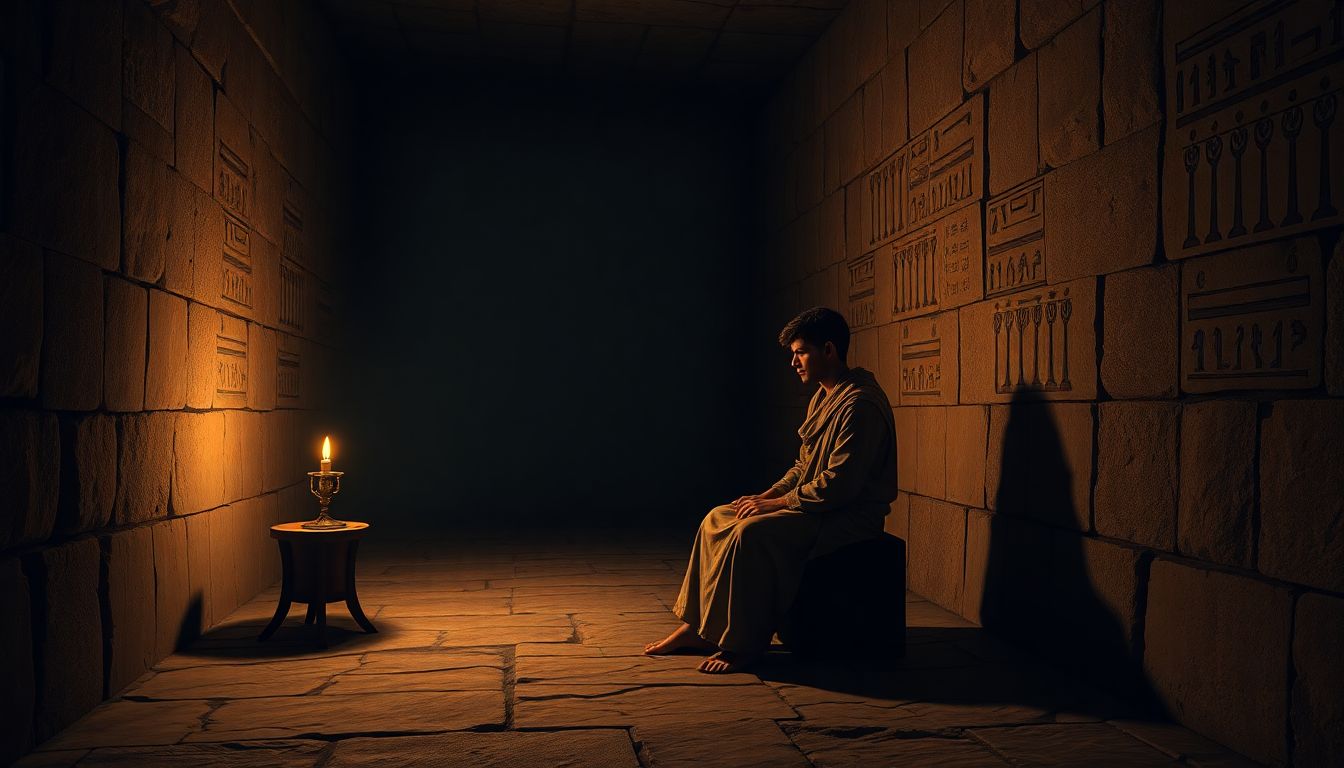
How Long Did Jehoiachin Reign in Babylonian Captivity? Unraveling the Mystery of a King's Imprisonment
The story of Jehoiachin, the last king of Judah, captures the imagination and raises many questions. His reign was brief, and his captivity in Babylon holds a significant place in Jewish history. Understanding the duration of his rule and how it unfolded during this challenging time provides insight into the fate of a captive king in ancient times.
The Historical Context: Jehoiachin's Short Reign in Judah
Jehoiachin, also known as Jeconiah, ascended to the throne of Judah at a young age. His reign began in 598 BCE and lasted only three months. The atmosphere in Jerusalem was tense, with external threats looming large.
- Accession to the Throne: Jehoiachin became king at just 18 years old after his father, King Jehoiakim, died.
- Challenges Faced: His rule was marred by political instability and internal strife, making it difficult for him to unify the kingdom and respond effectively to growing threats.
The Babylonian Exile: A Pivotal Moment in Jewish History
The Babylonian Exile drastically changed the lives of many Jews. It marked a transition, forcing them to adapt to life away from their homeland. Jehoiachin's capture was emblematic of this larger shift.
- Key Events: Following the siege of Jerusalem, Jehoiachin surrendered to Nebuchadnezzar II and was taken captive.
- Impact on Jewish Identity: This exile had lasting effects on Jewish culture, religion, and collective memory.
The Central Question: Jehoiachin's Reign – Captive King?
Did Jehoiachin maintain any semblance of kingship during his captivity? This question ignites curiosity as historical records present varied perspectives on his rule.
Jehoiachin's Reign in Jerusalem: A Brief Overview
Accession to the Throne and Early Years of Rule
Jehoiachin's ascendance marked a fleeting chapter in Judah's history. As a young king, he faced immense pressure from both Babylon and his own people. His reign focused primarily on managing external threats and internal dissent.
Challenges and Shortcomings of Jehoiachin's Kingship
Jehoiachin struggled with the complexities of governance. His inability to rally support led to instability within the kingdom. Conflicts with Egypt and Babylon put additional strain on his leadership.
The Siege of Jerusalem and Jehoiachin's Capture
In 597 BCE, after several months of siege, Jerusalem fell. Jehoiachin realized that his position was untenable.
- Surrender: He chose to surrender rather than fight to the last man.
- Deportation: His capture marked the beginning of a long period of exile.
Jehoiachin's Captivity: Years of Imprisonment in Babylon
The Start of Captivity: Date and Circumstances of Imprisonment
The precise beginnings of Jehoiachin's captivity can be traced back to his surrender in 597 BCE. Nebuchadnezzar relocated him along with thousands of other prisoners to Babylon.
Life in Babylon: Conditions and Treatment of Captives
Living conditions for captives were often harsh. However, Jehoiachin's status as a king provided him with certain privileges.
- Diet and Living Arrangements: Historical texts suggest he was kept in a palace and received regular provisions.
- Psychological Effects: The emotional toll of imprisonment likely affected his sense of identity and leadership.
Accounts from Historical Texts: Varying Descriptions of Jehoiachin's Experience
Different historical records depict Jehoiachin's time in Babylon variably. Some suggest he was treated well, while others highlight the harshness of exile.
Analyzing Historical Records: Sources and Interpretations
Biblical Accounts: 2 Kings, 2 Chronicles, and Jeremiah
The Hebrew Bible offers the primary narrative on Jehoiachin. Passages in 2 Kings and 2 Chronicles recount his capture and years in Babylon.
Babylonian Chronicles: Evidence from Cuneiform Tablets
Archaeological findings, especially cuneiform tablets, provide crucial insights. These records include names of captured leaders, underscoring Jehoiachin's importance.
Reconciling Discrepancies: Challenges in Historical Research
Historians face challenges when reconciling biblical accounts with Babylonian history. Disparities in dates and events require careful analysis.
Jehoiachin's Later Years: Favor and Elevation Under Nebuchadnezzar
A Shift in Treatment: Elevated Status in Babylon
As time passed, Jehoiachin's situation began to change. After several years, he was released from prison and granted a place at the royal court.
Evidence of Royal Treatment: Historical and Archaeological Data
Substantial evidence suggests that Jehoiachin experienced a significant shift in his status.
- Position in Babylon: He was given a daily allowance and treated with respect, indicating that he was no longer seen as a mere captive.
- Restoration of Dignity: This transition reflects a nuanced relationship between Jehoiachin and his captors.
Jehoiachin's Death: The End of His Captivity
Historical records do not provide clear details about Jehoiachin's death. Scholars suggest he may have lived until the early days of the Persian Empire, providing them with a unique perspective on leadership.
Conclusion: Duration of Jehoiachin's Reign and Captivity
Synthesizing Historical Evidence: A Definitive Answer?
Jehoiachin's reign lasted a mere three months, followed by a lengthy imprisonment. His eventual rise back to prominence complicates the narrative around his captivity.
Key Takeaways: Understanding the Reign and Captivity of Jehoiachin
- Jehoiachin's short-lived leadership coexisted with significant historical events.
- His experience exemplifies the complexities of power dynamics during exile.
- The transition from prisoner to dignitary illustrates the unpredictable nature of royal fortunes.
Further Research: Exploring Unanswered Questions about Jehoiachin
While much is known, many questions remains about Jehoiachin's life. Future research may uncover more insights into his reign and impact on Jewish history.